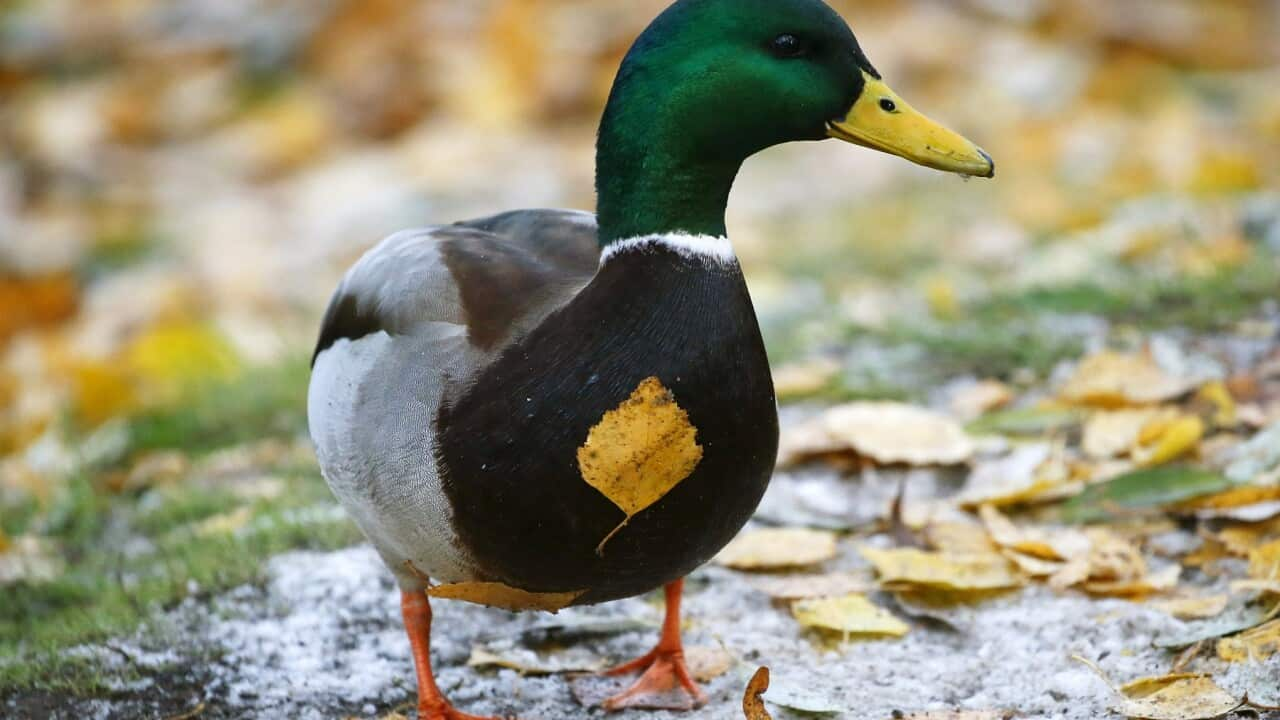Key Points
- The Macquarie Dictionary has announced the winner of its Word of the Year. It's teal.
- Bachelor's handbag, which refers to a takeaway roast chicken in a plastic bag, won the People's Choice category.
- Previous words of the year include strollout, doomscrolling and milkshake duck.
If phrases such as 'truth-telling', 'goblin mode', and 'nepo baby' aren't part of your vocabulary, they might be soon.
The Macquarie Dictionary has released its annual with 'teal' taking out the committee's choice award, and 'bachelor's handbag' attracting the most votes in the people's choice category.
'Truth-telling' was named as the award's first ever runner-up, with the judges flagging it as being indicative of how 2023 may unfold. "With increased discussion of the First Nations Voice to Parliament, there is a sharp focus on the need for clear, unembellished truth-telling about our past, " the committee said.
So what do these words and phrases actually mean, and are they here to stay?
What is the word of the year?
Word of the Year lists are released annually by dictionaries and publications including the Macquarie Dictionary, Oxford Dictionary, Merriam-Webster Dictionary, and Australian National Dictionary Centre.
The Macquarie Dictionary's list is limited to new words and meanings that have been added to the dictionary in the past year.
The contenders are broken down into different categories, which are then voted on by a committee, before 20 finalists are released to the public.
This year's winner, teal, refers to an independent political candidate who holds generally ideologically moderate views, but supports strong climate action and prioritising integrity in politics.
"New (definitions) of existing words don't tend to make it to the list so much, but we can see in the winner this year there's definitely a change," Maquarie Dictionary managing editor Victoria Morgan told SBS News.
"Prior to this year, teal was really just a term for a colour [a deep greenish-blue colour] and also a type of duck, and then it started to be used to describe an independent candidate with a certain set of shared views," she said.
The people's choice winner, the bachelor's handbag, is simply a supermarket takeaway chicken, named for the fact it requires no preparation before eating and often comes in a small plastic bag with a handle, resembling a handbag.
Ms Morgan said she was not surprised to see the term take off in popularity.
"The last few years have been quite serious, we've had COVID-19, we've had bushfires, we've had doom-scrolling, everything you could imagine, but Australians love to play with language and have a bit of fun with it," Ms Morgan said.
"So weren't surprised that the bachelor's handbag was so popular ... it took off like a rocket."
The committee's choice as runner-up, truth-telling, is defined as: "the act of relating the facts of a situation, exclusive of any embellishment or dilution applied as justification for past actions".
Are these words and phrases here to stay?
Over the years, many of the words and phrases the word of the year lists have historically gained prominence due to their connection to particular world events, political issues, or news stories.
Max Gwynn, a researcher at the Australian National Dictionary Centre at Australian National University, says words often go in and out of use over the years, particularly in a political context.
"That's the nature of them; sometimes we find them coming back after an absence, but particularly in a political realm ... it moves so quickly that words can come in and out of fashion," he said.
"What we found with teal is there was [federal independent MP] Zali Steggall back in 2019 wearing the colour, but it was only in the next federal election this year that we suddenly had a few of these types of candidates, and the teal movement was a good shorthand ... so that's how words start and if there's still a reason to have that word, it will continue on."
Ms Morgan says while some words and phrases rise and fall in popularity, others have a longer lifetime.
"A few years ago, we had 'cancel culture' as the committee's choice; that was quite interesting because while people were seeing this starting to happen quite frequently, there hadn't been a term for it before," she said.
"There was a bit of backlash is a bit of backlash with people saying 'I haven't heard of this, it's stupid, it doesn't exist' ... but now I don't think you could come across someone that hadn't heard of cancel culture, or to cancel someone."
What have been some of the previous winners?
Strollout, 2021 Committee Choice and People's Choice: Strollout references the rollout of COVID-19 vaccination program in Australia and perceived lack of speed.
Doomscrolling, 2020 Committee Choice: In 2020, Doomscrolling is defined as the practice of continuing to read news feeds online or on social media, despite it being negative and often upsetting.
Karen, 2020 People's Choice: Macquarie defines Karen as a derogatory term used predominantly to refer to a middle-class white woman, often of generation X, who is regarded as having an entitled, condescending and often racist attitude.
Milkshake Duck, 2019 Committee Choice: A person who is initially viewed positively by the media but is then discovered to have something questionable about them which causes a sharp decline in their popularity.
Robodebt, 2019 People's Choice: Macquarie as debt owed to the government, arising from an over-payment of benefits calculated by an automated process that compares the recipient's income as stated by them to the government with their income as recorded by the Australian Taxation Office, a debt recovery notice being automatically generated and sent to the welfare recipient.




